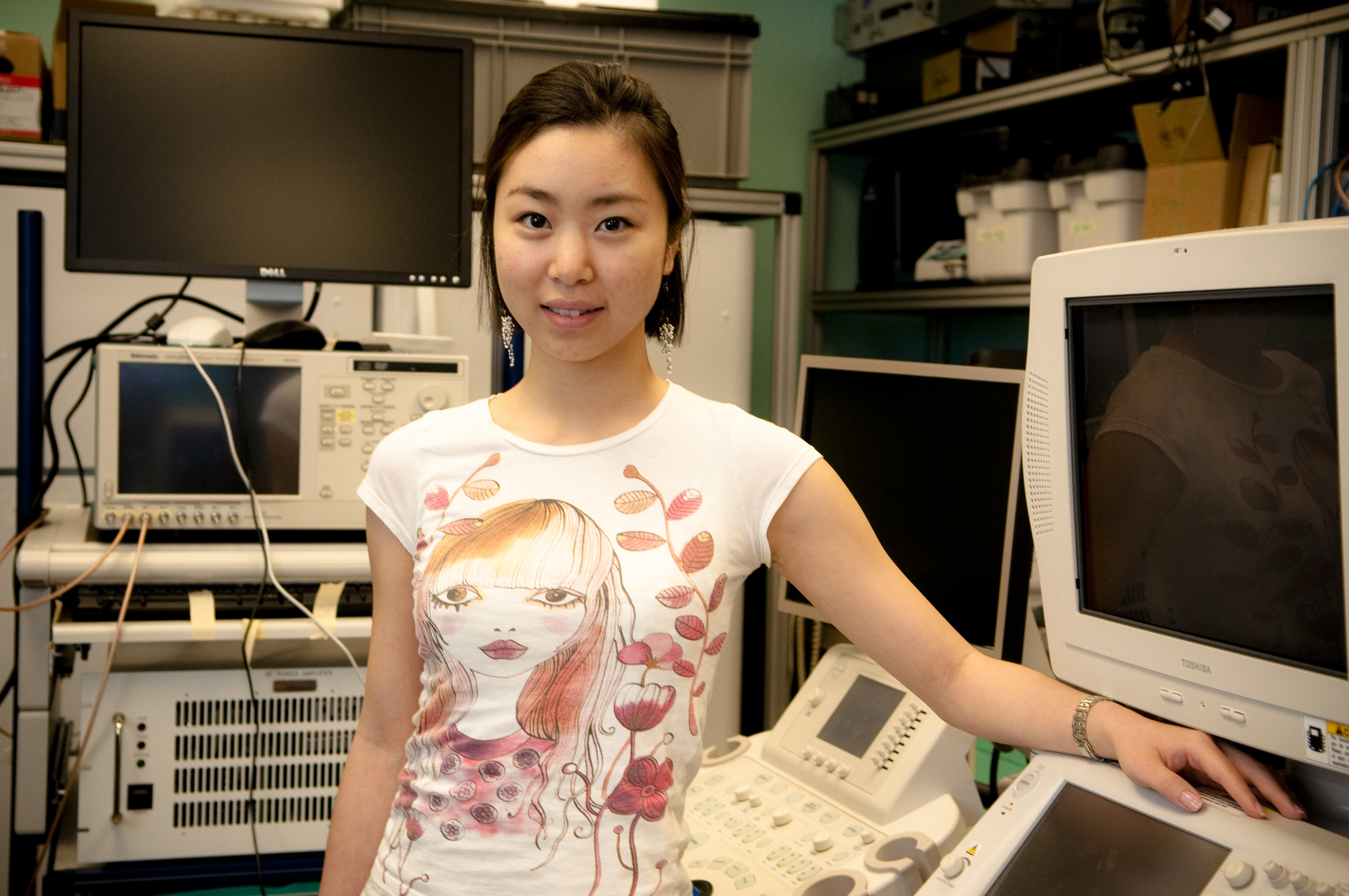A Returning Summer Student Finds Passion for Research Contagious at SRI

Christina Kim is a returning summer student working in the lab of imaging scientist Dr. Greg Czarnota.
By Alisa Kim
While many students will spend this summer waiting tables or working in retail, a select group of undergraduates—about 100-strong—will be working alongside scientists at Sunnybrook Research Institute (SRI) through the summer student research program. The program, which runs from May 1 to September 30, offers undergraduates a unique hospital-based research experience that allows them to explore careers in science. Summer students at SRI receive hands-on research training and the opportunity to attend a weekly seminar series where they are exposed to a variety of research topics and disciplines.
Christina Kim is a fourth-year biochemistry student at Queen’s University and a returning summer student in the lab of Dr. Greg Czarnota, an imaging scientist in the Odette Cancer Research Program. She is putting her lab skills to use to observe cancer death in cells using low-frequency ultrasound. For Kim, the summer studentship represents far more than a paycheque; it’s an opportunity to hone her research skills and be inspired by the work of SRI scientists and their lab members. Here, she shares what drew her back to SRI and what she has gained from the experience.
Why did you want to return to SRI as a summer student?
I liked the environment. I also liked the lab members and my supervisor. I had a lot of opportunities to experience many things. I learned a lot, especially [about] different types of imaging. I’m very proud to be here. I love being able to contribute to cancer research.
What’s a typical day in the lab for you?
I come in at 9 a.m. and work on my paper—reading journals, writing and revising. At noon, the lab members have lunch together. In the afternoon we work on another project that involves analyzing low frequency ultrasound data from breast cancer tumour cells. Once a week we have lab meetings.
How do you handle unexpected results that arise in your research?
I first talk to my supervisor and tell him [that] something’s gone wrong. Then I repeat the experiment to see what happens. If it happens again, I consult my supervisor and we attempt to find the cause together. Also, I try to be very organized. I do things one at a time, being as detailed as possible. All of us write notes—every single thing we do in the lab, even small mistakes. I look at my notes to make sure I don’t repeat those mistakes.
What have you discovered about the nature of research through this position?
Research is very repetitive. [You are] doing the same thing over and over again to get a result. Although the work may be repetitive at times, it’s worth it. When you see a trend in your findings, it’s really exciting. You feel like you’ve achieved something. Nothing is futile in research—even mistakes. I’ve also benefited from seeing how passionate people here are about their work and their interest in others’ projects as well.
What are your goals and future plans?
I would like to do oncology research at a pharmaceutical company or a hospital. Through this position I’ve become very interested in the field of imaging. The work I’m doing, imaging cancer death with ultrasound, is new and noninvasive.
What have you learned from your supervisor, Czarnota?
He is a very busy person—lots of things going on all the time—but he manages his time very well and is concerned about the details. He has a lot of students but cares for and tends to each individual.
What advice do you have for prospective SRI summer students?
You have to work with different kinds of people, from students to professors. Try to be friendly with everyone. Also, if you’re focused solely on your project you’ll miss out on opportunities to learn about others’ research. You should attend the seminars. When applying, it’s helpful to have a research background. Having good grades is important, as well as good references. Be proactive—call and e-mail the profs. Don’t wait for the acceptance to come.






